Gesha Village Coffee Estate coffee lot 22/119 sourced directly from Gesha village coffee estate.
Gesha Village Limited Offering Release
Bucket List item
Every industry has a bucket list of items or legends of the industry. Coffee has many of them, and we have slowly ticked off those we had on our bucket list. Most have lived up to expectations; a few have come short (you know what they say about meeting your heroes).
Gesha Village is one of coffee’s bucket list items. I first tasted it when I judged the local Barista competition coffee prepared by Winston Thomas in 2018. Since then, Winston has gone on to great things, becoming South Africa’s top Barista for three years.
Recently Winston was sourcing coffee from Gesha Village for the upcoming world barista competition (you can help him get there with Go Get Funding campaign click here…), and we asked if we could also get some. We sampled a few of the lots he had received. He was given first preference, and we got our third choice (out of 8).
In our last newsletter, you can read why Gesha Village coffee is a bucket list item. Or you can read their version of their story on their website.
Gesha Village
Besides the fact that Gehsa Village is famous for the Arabica variety Gesha, how the estate is run is relatively unique for Ethiopia. Most Ethiopian coffee is grown by smallholders or, more accurately, micro-holders. A typical coffee farmer in Ethiopia will have less than 3 ha and will work closely with the “buyers” and “co-operative” to get remunerated for their produce. Typically, most producers will also work at the co-operative during the harvest (and get extra remuneration doing so).
Gesha Village is a large estate of 417 ha. That is even above average for Brazil, which has the largest coffee farms. However, unlike many large coffee estates. Most of the coffee is separated into lots from specific areas of the estate. While much of the estate grows the famous Gehsa or Geisha Arabica variety, there are also areas of the farm that grow other variants of Arabica.
When a lot is processed, it is categorised by quality. Each lot will then fall into the following category:
- Rarities: Representing 10 percent of the total farm production. Rarities are the top coffees Gesha Village produces outside of the auction lots, and they are frequently chosen for competition by internationally competing baristas.
- Growers Reserve: Special micro-lots, accounting for 15 percent of our production, exhibit superior flavour attributes and excellent cup quality, scoring 88 points or above on the SCA’s 100-point scale.
- Single Terroir: Hail from a single farm area at Gesha Village. Complete traceability information on each lot number is a feature, including the farm block name, coffee variety, and processing dates.
- Chaka: A blend of coffees from all of the estate’s farm block areas and the entire production season. Available in natural or washed, coffees in the Chaka line offer a consistently delicious profile year after year.
As mentioned, we received eight lots, which we tasted (cupped) along with Winston, and we selected a few lots. The lot we decided on is 22/119; it is part of the Rarities category.
In their own words
From their website: “In the far western reaches of Ethiopia, mere kilometres from the South Sudanese border, lie the dense, wildly sprouting jungles of Bench Maji zone. It’s a place of stunning natural beauty, where from a high-extending plateau one can take in the expanse of the ancient, sprawling forest. This breathtaking landscape is home to Gesha Village Coffee Estate, the 471-hectare coffee farm we have built from the ground up over the last six years. This has been our labour of love, and we’re extremely proud to be producing coffees as awe-inspiring as our surroundings.”
Sustainability
In their own words: “Gesha Village’s goal is to be the finest, most environmentally conscious coffee farm in Ethiopia, with uncompromising commitment to quality in every step of cultivation and processing, and the ultimate dedication to our employees and to our customers.
We seek to connect the world to Ethiopia and reveal all of its beauty within a perfect cup of coffee.”
Read more here…
Coffee Lot 22/119
The lot we tasted (and selected) was one of the few not processed using extended fermentation – a rarity in itself with high-quality coffees today. Instead, it is a natural lot produced using typical raised Ethiopian drying beds.
Details:
| Block | Oma |
| Variety | Gesha 1931 |
| Harvest Date | 25 Jan 2022 |
| Elevation | 1931-2049 masl |
| Drying Days | 24 |
What to expect in this coffee?
In the cup, the coffee is very complex. We gave it five stars in complexity. You can expect fruity sweet tastes with floral undercurrents.
The tasting notes from Gesha Village are far more poetic: “Exotic aromas of tea rose, with the profound scent of jasmine. Delicate flavours of peach, apricot, candied fruit, melon, satsuma mandarin supported by a honey sweetness.”
Read the source of the above note on their exploring gesha page.
Transparency Information
| Producer / Organisation | Gesha Village Coffee Estate |
|---|---|
| FOB price | US$26/pound. Logistics R78.44 / kg |
| Cupping score | 87.5 |
| Lot size bought | 1 x 15kg vac packed bag |
| Relationship | Our first coffee from Gesha Village Coffee Estate |


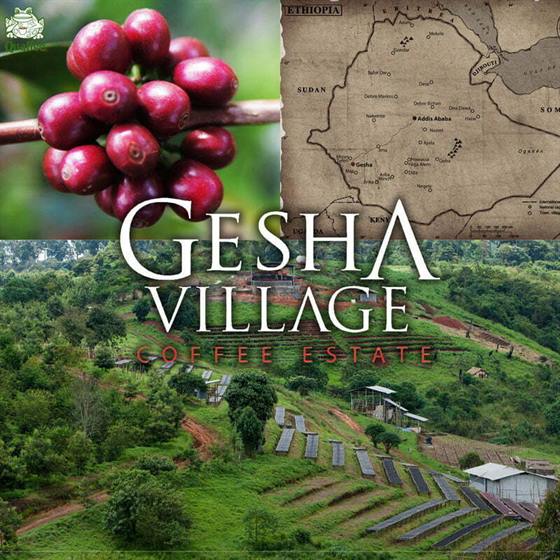
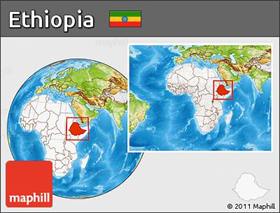
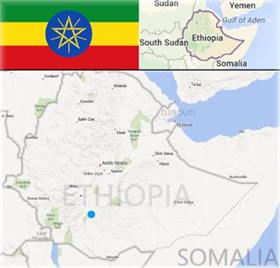
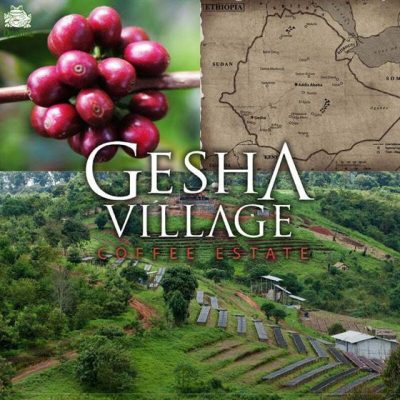

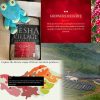
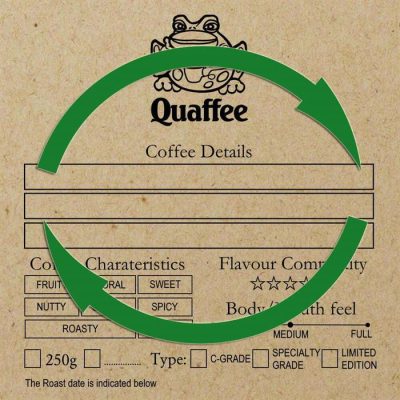
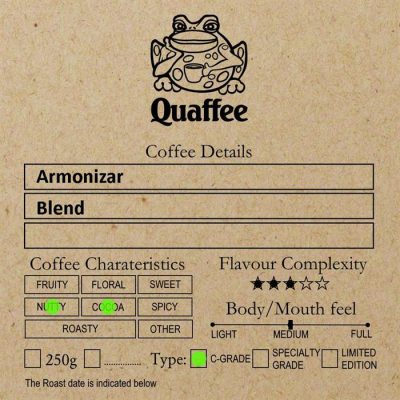
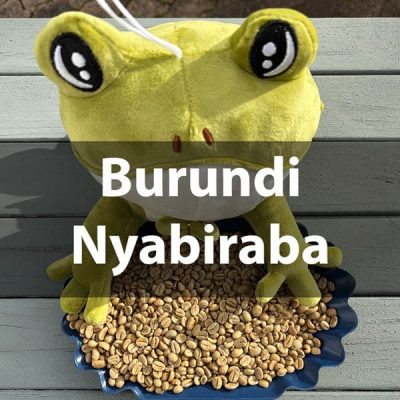
Reviews
There are no reviews yet.